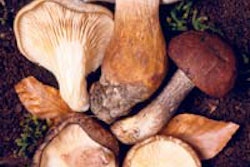Digested coconut oil is able to attack Streptococcus mutans, the bacteria that cause caries, according to researchers from the Athlone Institute of Technology in Ireland.
They will present their data this week at the Society for General Microbiology's Autumn Conference at the University of Warwick.
The team tested the antibacterial action of coconut oil in its natural state and coconut oil that had been treated with enzymes in a process similar to digestion. The oils were tested against strains of Streptococcus bacteria and found that enzyme-modified coconut oil strongly inhibited the growth of most strains of Streptococcus bacteria, including S. mutans.
Further work will examine how coconut oil interacts with Streptococcus bacteria at the molecular level and which other strains of harmful bacteria and yeasts it is active against. Additional testing by the group at the Athlone Institute of Technology found that enzyme-modified coconut oil was also harmful to the yeast Candida albicans that can cause thrush.
The researchers suggest that enzyme-modified coconut oil has potential as a marketable antimicrobial that could be of particular interest to the oral healthcare industry. The researchers noted that incorporating enzyme-modified coconut oil into dental hygiene products would be an attractive alternative to chemical additives, particularly as it works at relatively low concentrations.
Studies on enzyme-modified milk showed that it was able to reduce the binding of S. mutans to tooth enamel, which prompted the group to investigate the effect of other enzyme-modified foods on bacteria.



















